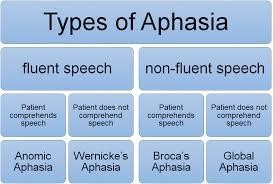A female client has just been diagnosed with condylomata acuminata (genital warts).
What information is appropriate to tell this client?
The most common treatment is metronidazole (Flagyl), which should eradicate the problem within 7 to 10 days.
The human papillomavirus (HPV), which causes condylomata acuminata, can't be transmitted during oral sex.
The potential for transmission to her sexual partner will be eliminated if condoms are used every time they have sexual intercourse.
This condition puts her at a higher risk for cervical cancer; therefore, she should have a Papanicolaou (Pap) smear annually.
The Correct Answer is D
Choice A rationale: Metronidazole is not typically used to treat genital warts caused by HPV.
Choice B rationale: HPV can be transmitted through various forms of sexual contact, including oral sex.
Choice C rationale: Condoms reduce but do not eliminate the risk of HPV transmission. Choice D rationale: Genital warts caused by HPV increase the risk of cervical cancer,
necessitating regular Pap smears for monitoring and early detection.
Nursing Test Bank
Naxlex Comprehensive Predictor Exams
Related Questions
Correct Answer is A
Explanation
Choice A rationale: Post-surgery, there's a risk of lymphedema in the affected arm, so avoiding procedures like venipuncture or blood pressure measurements in the left arm helps prevent complications.
Choice B rationale: Obtaining a permanent breast prosthesis is a consideration post- recovery but not an immediate priority upon return to the surgical unit.
Choice C rationale: Patient-controlled analgesia instructions are important but don't specifically address immediate care after mastectomy.
Choice D rationale: Insisting that the patient examine the surgical incision might not be appropriate upon return to the unit, and it's typically done by healthcare professionals during dressing changes.
Correct Answer is D
Explanation
Choice A rationale: Expressive aphasia is a type of non-fluent aphasia that affects the
ability to produce language. It is caused by damage to the anterior part of the left frontal lobe, which is responsible for motor planning and execution of speech. Patients with expressive aphasia can understand language but have difficulty speaking, writing, or naming objects. They often produce short, halting, and grammatically incorrect sentences with word-finding difficulties.
Choice B rationale: this is another term for expressive aphasia. The patient can
understand language but have difficulty speaking, writing, or naming objects. They often produce short, halting, and grammatically incorrect sentences with word-finding difficulties.
Choice C rationale: Global aphasia is a severe form of aphasia that affects both
comprehension and production of language. It is caused by extensive damage to the left hemisphere of the brain, which is dominant for language functions in most people.
Patients with global aphasia have little or no ability to speak, write, read, or understand language.
Choice D rationale: Wernicke's aphasia is a type of receptive aphasia that affects the
comprehension and production of language. It is caused by damage to the posterior part of the left temporal lobe, which is responsible for processing auditory and visual
information. Patients with Wernicke's aphasia can speak fluently but nonsensically, using words that are irrelevant, invented, or distorted. They also have difficulty understanding spoken or written language and following commands.

Whether you are a student looking to ace your exams or a practicing nurse seeking to enhance your expertise , our nursing education contents will empower you with the confidence and competence to make a difference in the lives of patients and become a respected leader in the healthcare field.
Visit Naxlex, invest in your future and unlock endless possibilities with our unparalleled nursing education contents today
Report Wrong Answer on the Current Question
Do you disagree with the answer? If yes, what is your expected answer? Explain.
Kindly be descriptive with the issue you are facing.
